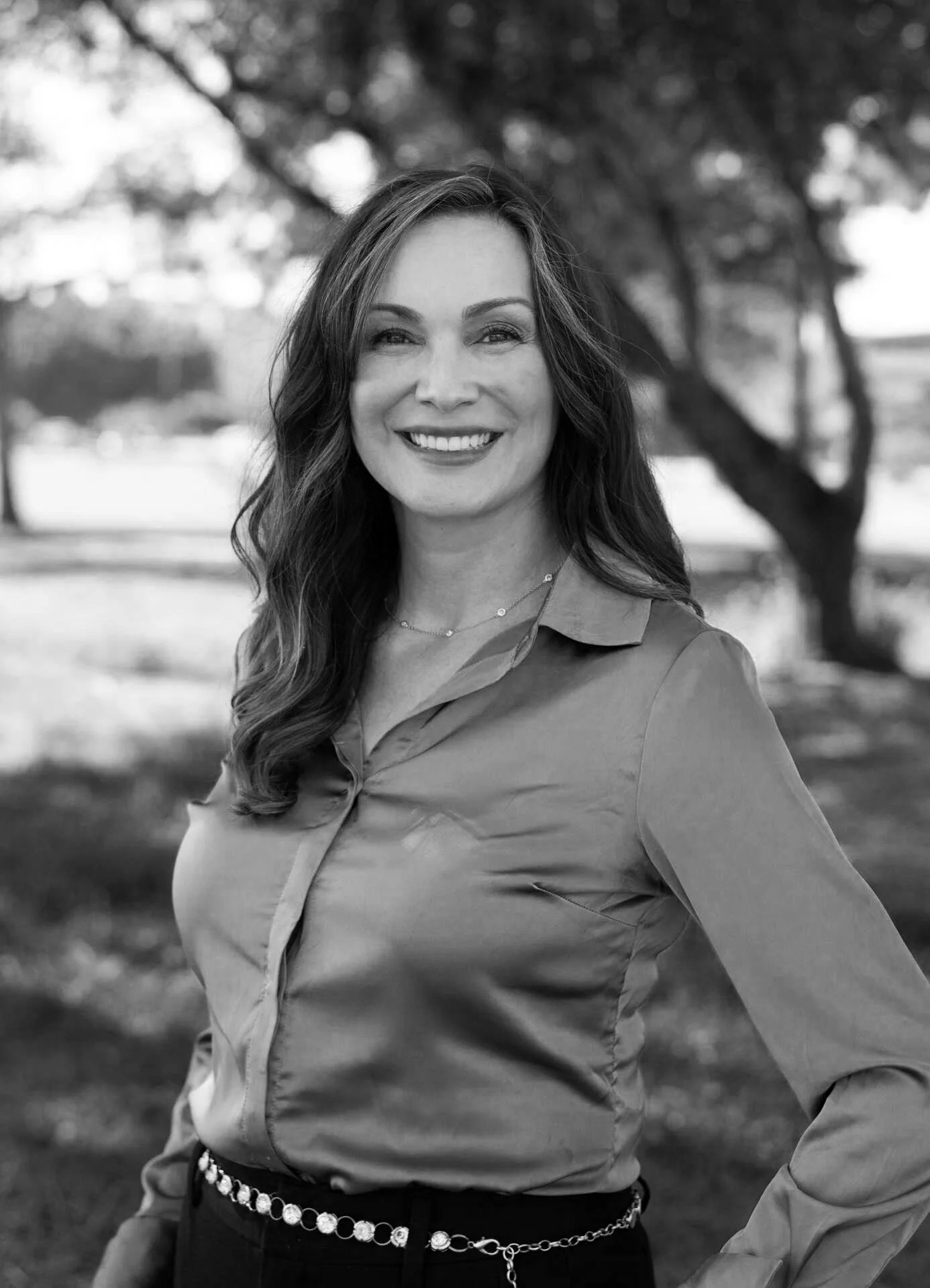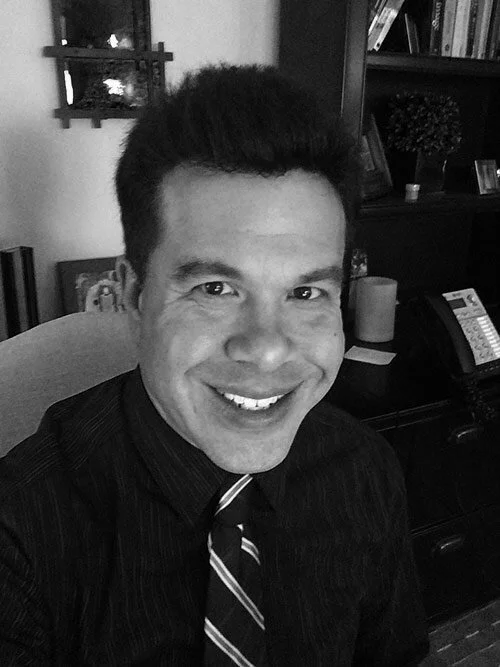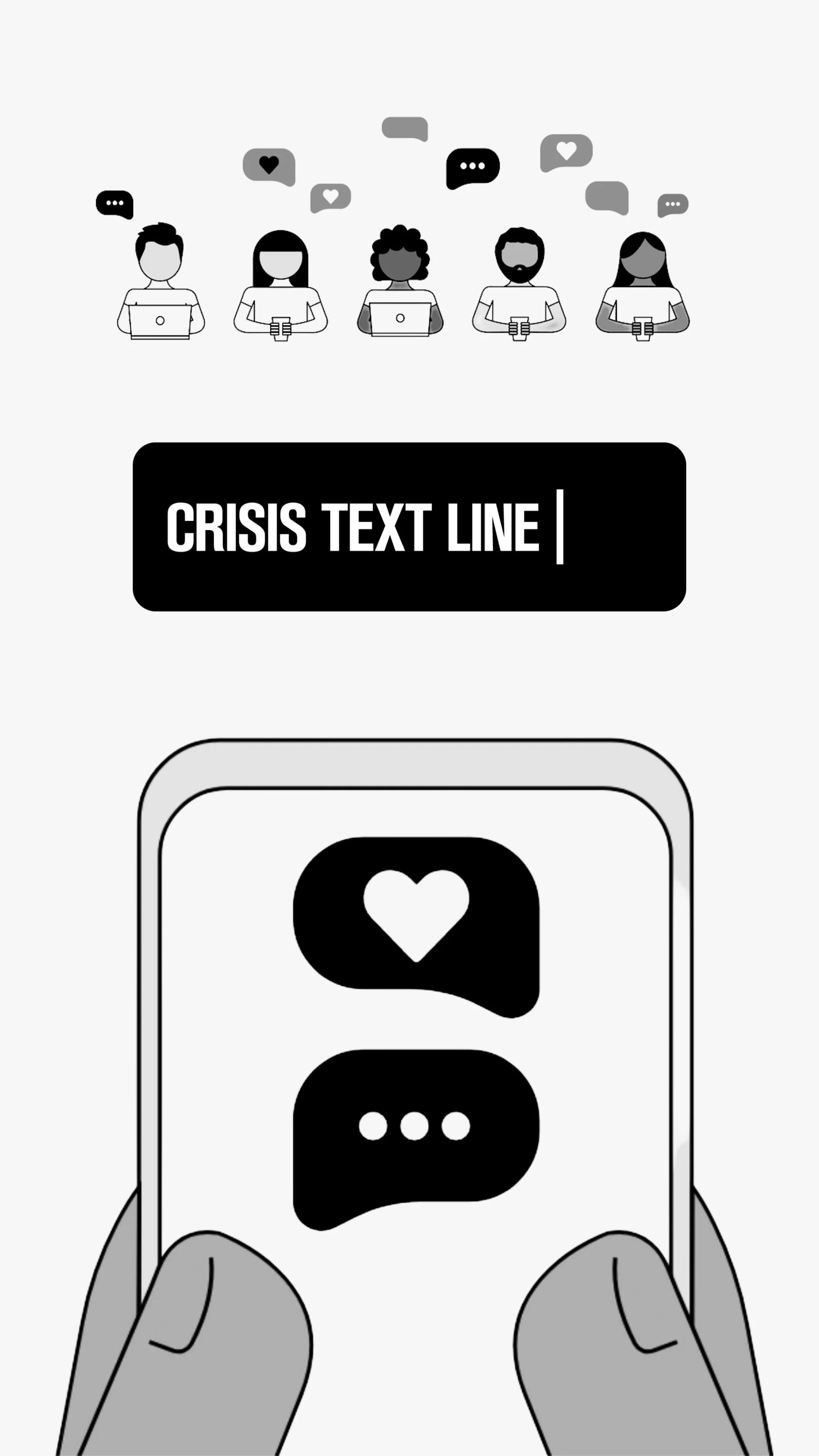153. EMOTIONAL VULNERABILITY: How Teenagers Can Understand & Regulate their Emotions!
listen to this episode:
Tune in and subscribe on your favorite platform: Apple Podcasts | Spotify | Stitcher | Google Play | Radio Public | PocketCasts | Overcast | Breaker | Anchor
Today's solo episode is all about emotional vulnerability in teens! I explain the DBT model of emotions and the biopsychosocial theory as a background for how teens understand their emotions and why certain teens are more emotionally reactive. I then discuss why physical vulnerability affects teens' emotional regulation skills and how to decrease physical vulnerability using the DBT PLEASE skill. This episode is a MUST LISTEN for teens wanting to learn emotional regulation skills and for parents looking to understand their teens' emotions better!
Mentioned In The Episode…
+ Biopsychosocial Model Resource
+ Physical Vulnerability Resource
SHOP GUEST RECOMMENDATIONS: https://amzn.to/3A69GOC
About She Persisted (formerly Nevertheless, She Persisted)
After a year and a half of intensive treatment for severe depression and anxiety, 18-year-old Sadie recounts her journey by interviewing family members, professionals, and fellow teens to offer self-improvement tips, DBT education, and personal experiences. She Persisted is the reminder that someone else has been there too and your inspiration to live your life worth living.
a note: this is an automated transcription so please ignore any accidental misspellings!
Sadie: Welcome to She Persisted. I'm your host, Sadie Sutton, a 19 year old from the Bay Area studying psychology at the University of Penn. She Persisted is the Teen Mental Health Podcast made for teenagers by a teen. In each episode, I'll bring you authentic, accessible, and relatable conversations about every aspect of mental wellness.
You can expect evidence-based, teen approved resources, coping skills, including lots of D B T insights and education in. Each piece of content you consume, she persisted, Offers you a safe space to feel validated and understood in your struggle, while encouraging you to take ownership of your journey and build your life worth living.
So let's dive in this week on She persisted.
We don't judge or blame. Emotions are not good or bad Interpretations are not good or bad. They might just not be effective, and so that's what's important to remember with. Interpretations, which is that if you interpret an event one way and someone else interprets it another way, it's the dialectic that both of your lived experience is, and both of your truths can be true at the same time.
Hello, hello and welcome to She Persisted. I'm so excited you're here Today. We are doing a solo episode and we are talking about emotional vulnerability. I talk about this almost every single episode because it is so relevant to feeling emotions, processing emotions, using your coping skills. It's very much, it's not synonymous with mental health, but it's a key player in the mental health picture.
But I've never done an episode dedicated to emotional vulnerability. And what's crazy about that is that it is one of the first things you learn and one of the. First pieces of education that happens in D B T and what I learned in residential and in those early days of therapy. So I'm really excited to do an in-depth episode here.
I pull from these insights and pieces of information on the daily. They're absolutely essential to understanding your mental health and how you respond to things and how you can be. Effective in coping with situations and do preventative mental health works. I'm really excited for this.
I hope you enjoyed as well. And as always, if you like this episode, make sure to share it with a friend or family member. Leave a review on Apple Podcast or Spotify and also, If you share it on social media, tag me it out, she persisted podcast, and I'll make sure to re-share and give you a little shout out.
So with that, we are talking about emotional vulnerability and the first thing that we're gonna talk about here is the model of emotions. So how we understand and describe emotions. We're also gonna touch on the biopsychosocial theory. We're going to talk about physical vulnerabilities to emotional vulnerability.
There are. So many different angles to come at this idea of emotional vulnerability, and I want to give like a very full picture of what emotional vulnerability is, what you can do to combat emotional vulnerability. Now that you're aware of it. But we're gonna start in this area with this school of thought, which is the model of emotions.
So in D B T, there's a cycle to understand and describe your emotions. It continues on because emotions are always coming and going, but we are going to start with the prompting event because in most cases, this is what causes the emotion to a arise.
Even though you might have like a low level emotional arousal, a prompting event is normally where you're like, wow, I'm feeling guilty, or ashamed or sad or angry, or whatever the emotion is. So the prompting event is whatever causes the emotion, and this can either be internal, so this is like thoughts, behaviors, something physically that happens.
Maybe it's how you're speaking to yourself, et cetera, or externally. So maybe it is an environment you're in, maybe it's an interaction with someone else. It is much easier to think about these things. At least for me, when I think about it from an external cue. So like I'm having an argument with someone, they said something and then this emotion comes up.
And what is great about understanding the prompting event, and this is where the chain analysis skill comes in, which we've talked about before, where you analyze how an emotion or a behavior came to be, which emotional vulnerability is key to, that's one of the big things you analyze. But prompting events are important because especially if they become repetitive and a cycle, if you understand the prompting event, that typically causes an emotional reaction, you can cope ahead and you can do the work to decrease your emotional vulnerability around that thing.
So the next step in the cycle, we have the prompting event. Then we have our interpretations.
So I love this sentence from the article that I'm referencing when talking about this. I wanna share it with you, which is that the prompting events are not what triggers the emotion, it's the interpretation of the event. So two people can experience the exact same event, and if one interprets it in a way that , causes a really emotional reaction, they'll get really upset and overwhelmed and distressed and maybe use a maladaptive coping mechanism.
Whereas if the other person has a really effective way of interpreting the event, they will have a much easier time navigating it and proceeding in an effective way. The important thing here is the caveat that all emotions and thoughts and beliefs are valid. They're all allowed to be there. They can all show up and we can navigate through them in an effective way.
We don't judge or blame. Emotions are not good or bad Interpretations are not good or bad. They might just not be effective, and so that's what's important to remember with. Interpretations, which is that if you interpret an event one way and someone else interprets it another way, it's the dialectic that both of your lived experience is, and both of your truths can be true at the same time.
So interpretations are stemming from our thoughts, beliefs, assumptions, and judgments around the situation. So how you mentally process through it, the assumptions that you make, that is what curates this interpretation, and this is where the check the facts scale is really helpful because if you are. In an argument and you think that the person is already mad at you, so you're already on the defensive. If you've checked the facts and you're like, did they say something that was maybe like a little bit passive aggressive?
Did they say that they were upset? Did we have a previous conflict? You're like, none of those things are true, and maybe they actually do seem to be approaching this in a neutral way. You've checked the facts around the idea that they're already mad at you and you need to be on the defensive. So your interpretation that they're mad at you was ineffective.
So if you can adjust that interpretation and say they just wanna have a conversation and maybe give me some feedback, you can be a lot more effective. And the interpretation of the prompting event means that you're not as emotional and reactive. So the next step in the cycle is your biological changes and experiences.
We are going to talk about the bio psychosocial theory and a lot more depth later in this episode. But what's important to flag here is that as a teen and as a young adult biologically, your brain is already working differently. You experience your emotions more strongly. You are less predisposed to logic through the situation to be rational because your prefrontal cortex isn't fully developed.
You're more hormonal. You as a young adult experience things like embarrassment and rejection more strongly than adults do. You place more significance and more value on social acceptance and social groups and fitting in. Like that's just how our brains work and what has been shown through research.
We also are in a critical period for the development of mental illness. 50% of mental illnesses developed by 14, 75% by 24. So you're feeling your emotions more strongly, you're less logical. You place more. Value on embarrassment, acceptance, rejection, like it is challenging to be a teen and to navigate these emotions because your brain is operating completely differently, and so this is one example of those biological changes.
It's also important to account here that this is also things like your fight or flight mode, or if you feel really tense or your fist clench up, or you're sweating because you're anxious, like those are all part of those biological changes. But it's also helpful to understand. Them globally as a teen, and also for you as a person, you might experience your emotions more strongly than someone else.
You might be more sensitive, and we'll get more into that with the bio psychosocial theory. So the next part of the cycle, we've done the prompting event, the interpretations, the biological changes we're onto expressions.
So this is how we express the emotions, whether it's what you say, your facial expression, how you respond to the situation, and again, it's really easy to think about this in the context of an argument. Are you glaring at the person? Are your arms crossed? Are you like, this is so unfair, this was so rude of you.
How dare you? That is the expression of the internal emotion. This may be anger or hurt, or sadness or rejection. So we can't necessarily control our biological sensitivity to our emotions or the emotion that arises in the first place. We can control our interpretations. We can rewire those and we can also control our expressions.
And this will also help with things like your relationships and your emotion regulation long-term and your distress tolerance. Because we do have control over the way that we express them. And a lot of the times, the expressions of your emotions are what have the most significant consequences, and not necessarily using that as a positive or a negative term, but if you express your emotion and you're vulnerable, That has a positive consequence. If you are really angry and you say something rude or you react in an ineffective way, that is a negative consequence.
You have to repair the relationships. The expressions have the biggest impact on your life and a day from now, a week from now, a month from now, maybe the thought that went through your mind or the physical representation of the emotion like your this were clenched that necessarily won't have a long term impact, but the expression will.
And then the last thing, which we literally just touched on is the after effects. So this is the thoughts, the memories, the relationship impacts, what happens after this whole event and cycle takes place that then affects us down the line.
So that is the model of emotions that can be really helpful to understand how we understand and describe emotions. And now we're gonna work backwards. So that's what's happening when we are experiencing the emotions and going through that process.
Well, what about everything that comes before that point that impacts how we express our emotions, how we interpret them, the thought patterns that we have, how likely we are to experience the emotion in the first place?
So we're working backwards, right? We've talked about how we go through the cycle of emotions. Now we're gonna talk about the bio psychosocial theory.
After this we're gonna talk about the plea scale, which is physical vulnerability, but the biopsy psychosocial theory is really at the core of D B T and very relevant to individuals who struggle to regulate their emotions and feeling their emotions very strongly. It explains why some people are so sensitive and feel their emotions so intensely like me.
So, The biopsy psychosocial model is a theory about how symptoms arise, symptoms of depression, anxiety, emotional dysregulation, and also how they're maintained because someone might be emotionally distressed one time, but if it never happens again, that symptom isn't being maintained and reinforced in D B T.
The individuals that receive treatment a lot of the times are maintaining and reinforcing these behaviors and ineffective coping skills to get their emotional needs met. So the equation for the Biosocial model is that emotional sensitivity plus an invalidating environment equals pervasive emotion dysregulation.
Diving into emotional sensitivity. We just talked about how teens are biologically almost at a deficit when it comes to experiencing your emotions. This is part of the bio, part of the Biosocial theory. There's also the psychology of it, so how are you interpreting events? How are you mentally processing through them?
And that's part of the emotional sensitivity in the bio psychosocial theory.
Then the next part to touch on in this equation is the invalidating environment. And so D B T defines an invalidating environment as one where a person doesn't fit in. It's not necessarily that it's an emotionally uncomfortable or abusive or an unhealthy environment, but it's one where you're not feeling validated or.
Seen or heard, or you don't fit, you don't feel like your emotions are being recognized or fully processed or acknowledged in that family, friendship, social interaction. And because this is a cycle that occurs over a long period of time, it's a dynamic that keeps getting repeated.
And so because there is this role of social relationships and it's essential for that invalidating environment to occur in conjunction with the emotional sensitivity, this is a transactional process. It takes multiple people to reinforce this model and lead to this extreme emotional dysregulation. So to give you a little bit more context here, and I'll link the website and I'll link the D B T resource that I'm pulling this from.
In the show notes, but this theory, this equation, it explains how symptoms arise and also how they continue to arise, how they get reinforced and maintained over a long period of time and get to the point of causing distress and dysfunction in an individual's life.
And this is not only true for borderline personality disorder, which is what D B T was originally developed for, but a whole host of mental health challenges. And we talked about emotional sensitivity in this equation. Another key idea here that is at the foundation of this theory is that emotional sensitivity is inborn.
So it's the idea that we all have different sensitivities in life. And the great example this D B T resource is with skin or scent. So some people get some burnt more easily. Some people get rashes when they use a certain detergent. Some people don't respond well to a certain perfume.
Maybe you're more acne prone. So all of our skin have different sensitivities to the same stimuli, but depending on the person, they have different biologically born sensitivities. So you respond differently. And the same exact thing is true with our emotions. Even if two people are experiencing the exact same stimuli, biologically, you are going to respond differently.
So that's why some people are more sensitive than others, and a key part of this, and one of the biggest takeaways that I had when I did D P T is that you can't change your emotional sensitivity. It's something that you're born with and it's okay, and it's part of you as a person. It's part of your genetics, and it's not bad or good, it's just different. And so if you're more emotionally sensitive, it's part of your genetic makeup.
And it's also important to note that that alone isn't necessarily something that causes mental health challenges or mental illnesses. It's again, this environment that can lead to long-term emotional dysregulation. So again, going deeper into that environment and clarifying that farther it's transactional over time, the individual doesn't fit, and it may or may not be unhealthy, abusive, toxic, et cetera.
So to explain this further and clarify how this equation and outcome comes to be, you have a person who is biologically born to be more emotionally sensitive. They're in an environment where they don't fit, they're being invalidated, they're feeling misunderstood, and then these transactions occur over time and lead to emotional dysregulation.
And this is because of the reinforcement that occurs with time. And if you've done D B T before, you know one of the biggest challenges that people are navigating is emotional dysregulation. So many challenges and conflicts and behaviors are a result of not being able to regulate your emotions, whether it's self-harms who settle ideation, unhealthy relationships, A lot of those are attempts to cope with the emotions that are arising that you're not able to effectively regulate.
And this is so true, that patients that are a good fit for D B T are identified because they have that emotional dysregulation and that's a core characteristic of what they're presenting with, and that's how you know that D B T and the skills it teaches might be a good fit.
So to kind of conclude this, we have this equation, and if you're listening to this, you're like, well, it sounds like the person is sensitive and then they're not reacting well to this environment. So like, isn't it that person's issue and don't they need to solve something here so that they're not being dysregulated and D B T, the goal is to not blame the patient. You do have to solve problems that you haven't necessarily created for yourself in D B T, that's one of the core beliefs, but when it comes to emotional reactivity and emotional sensitivity, we're not blaming the individual. So what's called a no blame model in D P T. And this is great, especially in adolescent D B T because a lot of the times the whole family is doing D B T and the parents will be like, well, my team can't regulate themselves. They need to learn skills. And it's causing so many challenges within our family system.
In D B T, you're using a no blame model. So the person who is coming in for treatment, Isn't necessarily the one to blame for the environment. It's not the family that is to blame for this environment. It is the transactions between the person that's emotionally sensitive and the environment that's invalidating, that is resulting in this emotional dysregulation.
It's the invalidation that is exacerbating and maintaining the biological sensitivity of the individual.
And so that's one of the biggest goals in D B T is identifying that environment, adjusting the transactions in the relationship so that you're not reinforcing that vulnerability, sensitivity, and invalidation.
So to kind of wrap this up, and I will link this whole resource in the show notes, you can read more about the biopsychosocial theory. But the theory of how symptoms arise and are maintained is a no blame model called the bio psychosocial theory. Within that equation, there is emotional sensitivity plus an invalidating environment, which equals pervasive emotion dysregulation.
We believe that emotional sensitivity is inborn, and an invalidating environment is one where a person does not fit, and it doesn't necessarily have to be an abusive, toxic, or unhealthy one. And lastly, the Biosocial model is transactional in nature. So that is the bio psychosocial theory and a huge factor in emotional vulnerability, especially if you are feeling vulnerable in specific environments and continually noticing that you're more vulnerable in that specific environment.
Think about the bio psychosocial theory. Is it an invalid environment? Are you biologically predisposed to being more sensitive? And is this environment exacerbating it?
I probably should do a whole episode on the bio psychosocial theory because I absolutely love it. I think it is so important. It's crucial to understand, to understand mental health, and every time I hear it, I'm like, that is so validating to my lived experience. Like I am emotional and I do feel invalidating and it's not my fault, but I can still work to improve the situation.
So we love it. It's one of my favorite things, kind of like a little comfort blanket of a belief. But the last thing we're gonna touch on is the please skill. So we talked about how we experience emotions, how we understand and describe them. We talk about the environment itself and that mix of biological predispositions to emotional reactivity, as well as how the environment can reinforce and maintain that.
So if we think about the biopsychosocial theory as your emotional vulnerability to a situation, your physical vulnerability is the police skill. So this is an acronym that stands for physical illness. Eat balanced, avoid mood altering substances, sleep balanced.
And exercise balanced. And whenever we're not doing any of those things, our physical health suffers. And it's not just our physical health, but we are more at risk to be more emotional and more sensitive to a prompting event. So for more emotionally vulnerable, one of the items in that equation is the police skill and is your physical health.
So to walk you through this pretty quickly, it's pretty simple. It's one of the most intuitive skills in D B T, but it's also really important to check in on and be cognizant of, especially in emotional situations. But the idea here is that our physical and mental health are very connected. So one more emotional.
There is a physical reaction that takes place in our brains, in our bodies, and how we cope with an emotion. Is connected to how well we've maintained our physical health. So if we're hangry, we're more likely to be snappy and irritated. If we haven't slept well, we're more irritated. We have a shorter fuse.
We can't problem solve as effectively. We can't process our emotions as well. If we haven't exercised, we probably aren't working through these more strong, intense emotions. But we're also not releasing endorphins. If you weren't taking your medication, your physical health is at a loss.
So all of these things are important to maintain, to make sure that we're not putting ourselves at unnecessary risks, to experience really strong emotions and potentially a full-blown crisis.
And so, This is important in D B T because a lot of the times you have individuals that are really struggling, like every day is incredibly challenging and incredibly overwhelming, and every day you're having a breakdown and a huge emotion and a whole crisis and a panic attack and whatever the heck it is, you are struggling.
And so we have to do everything we can to reduce the likelihood of these really emotionally overwhelming events. And that means taking care of our physical health. So first we're gonna talk about physical illness, and this is also encompassed with stress. So we know that stress influences our emotions. It also influences how intense the emotions that we feel are, and feeling very stressed out and chronically stressed out means that you're more physically vulnerable to having an overwhelming emotional experience.
And so what we can do here is a couple of things. The first is staying on top of our physical health, so going to doctor's appointments, taking our medications that we're supposed to be taking. Checking in on any symptoms that might pop up that are concerning so that we're again, decreasing our risk for emotionally overwhelming situations.
But when we're addressing stress in chronic stress specifically, we also look at the environment. So is it jobs? Is it relationships? Is it your your day today routine? Are you not getting an exercise? Whatever it is, making sure that we are examining those environmental factors that may be leading to long-term, severe physical illness issues.
But to recap the P and physical illness and also the L, because it's like physical and then the last L is capitalized cuz it's not a very good acronym. I like to just encompass that and say taking meds, going to the doctor, making sure that I'm resting when my, I'm sick and I need to recuperate, not pushing my body too hard, et cetera.
Now moving on to eating balanced. So we know that we get hangry when we don't eat enough, when we haven't eaten, when our body doesn't have enough fuel to be able to physically function. We also can't mentally function as well, you don't have the fuel to be able to problem solve, to cope with these emotions, to come up with an effective way to navigate the situation.
So it's really important that we are eating balanced and making sure that we're getting all of our meals so we're not overeating with binging, which can also, again, cause really intense emotional reactions or undereating, which makes us more susceptible to experiencing our emotions more intensely. there's also little things like depending on what types of food you're eating, you can feel a decrease in mood.
You can feel depressed, you can feel sluggish. So making sure that you're eating a balanced diet, getting the nutrients you need, because if you're eating all junk food 24 7, that in itself will have an impact on your emotions, not even touching all of the mental health challenges that you might be experiencing.
The next thing we're gonna talk about is addiction and avoiding mood altering substances. So I kind of split taking your meds on a day-to-day basis between this and the physical illness part of the plea scale. But it's important to be taking your meds as they're prescribed, not skipping doses or they won't work, which is a big part of mental health.
But there also is the idea of how mood alling substances and addiction can impact our mental health.
So the, the overall thing here is avoiding them, but the key here is being mindful about how they impact your body. So one that I always like to bring up that most people don't think about is caffeine. If you're really anxiety prone, you have a lot of panic attacks.
If you're doing like two lattes every day, that's probably making you more anxious. It's making your Mine spiral more rapidly. You're shaky more easily. Your heart rate has already increased. So being aware of how these things impact your body, and not only your body, but your mental health challenges like anxiety, depression, ooc D, eating behaviors, whatever it is, sleep.
My favorite part of the plea scale because it just has such a big impact on your mental health. Sleep hygiene is very important and you are aiming for like seven to nine hours a night. Teens need more sleep. College students get a lot of it, but you probably need more. It is the biggest thing that I notice impacts my mental health on a day-to-day basis.
And it's absolutely essential for our brains to be able to process and regulate our emotions. And it's almost like the movie, inside out every single night, all the emotions and thoughts and memories are filtered through and cycled and put away into long-term memory. If you're not doing that, you're not able to regulate your emotions the next day. You are more emotionally vulnerable. So sleep is really important to process your emotions, but it's also important to be able to problem solve, concentrate, be able to logic through situations, and you're putting yourself at a deficit.
You're making yourself more emotional when you're not getting enough sleep. So if you wanna decrease your vulnerability to stress and emotions, get more sleep and make sure that you are doing everything you can to have good sleep. Hygienes, that means that you're going to bed at the same time every day, waking up at the same time every day, which you can control for more so than going to bed at the same time every day.
Turning off screens before you go to bed, making sure that you have like a dark, cool, quiet, comfy room to sleep in reading before bed, if that's helpful for you. Maybe you're like doing your skincare before bed like I do, drinking tea, melatonin, whatever it is that you are doing, making sure that you're having consistent quality sleep and solving for all those sleep hygiene factors.
So the last part of the police scale is exercise. We talked about this in the overall thing, but there. Or a couple different benefits of exercise and mental health that you're probably all aware of.
Cause like that's the first thing people ask you if you're like, oh, I struggle with my mental health. They're like, have you tried exercising? It is great. It releases endorphins. You'll be so happy. And you're like, yeah, I've definitely tried that before. It didn't work.
But there are a lot of benefits to exercising and having balanced exercise within your routine when it comes to mental health. So, I know you're not gonna wanna hear this because I hear this memory. Ah, that's so much work. That's so annoying. But regular cardio sessions, 20 to 30 minutes, five times a week, have the same effects as using antidepressants for mild forms of depression without the side effects.
So what works? It can be really effective for your mental health. I also like to think about it short term, so knowing that it increases endorphins. It helps me build mastery. It boosts my mood. It helps me feel like I've gotten something done. It helps me have a purpose, like, okay, I'm going to work out now.
I have this commitment. I'm showing up for myself. Like guys, I'm not the pinnacle of being a consistent. Working outgoing person, but it does help boost my mood. But there are also other benefits as well. More longer term, like your body is stronger, it's more resilient to emotional stress in addition to those short term benefits, like releasing endorphins, improving your mood.
And so building that into your routine can again help build up your emotional resilience to that vulnerability. So I just threw so much information at you, but to recap, we talked about how we describe and understand our emotions and that cycle of understanding, emotional vulnerability. We then dove a little bit deeper into the emotion side of vulnerability factors. So we talked about the biopsychosocial theory, and within that we talked about invalidating environments and emotional sensitivity. And then we talked about physical vulnerability and how that can impact. Are emotional vulnerability as a whole. So I really hope you like this episode.
All of these tidbits and takeaways were things that really helped me in treatment and today, and it gives you a sense of comfort and reassurance. So like, it's not my fault if I experience my emotions more strongly than my friends or family members. It's not, not necessarily on me, it's just how my brain works.
So now that I know that, what can I do to set myself up for success and decrease that vulnerability? So my emotions aren't as overwhelming. So, If you enjoyed this week's episode, you know, leave, review, share post on social media, it really helps the podcast and it helps me out. I hope this was helpful.
I hope you enjoyed and I'll see you next week.
Thank you so much for listening to this week's episode of she persisted. If you enjoyed, make sure to share with a friend or family member, it really helps out the podcast. And if you haven't already leave a review on apple podcasts or Spotify, you can also make sure to follow along at actually persisted podcast on both Instagram and Tik TOK, and check out all the bonus resources, content and information on my website.
She persisted podcast.com. Thanks for supporting. Keep persisting and I'll see you next week.
© 2020 She Persisted LLC. This podcast is copyrighted subject matter owned by She Persisted LLC and She Persisted LLC reserves all rights in and to the podcast. Any use without She Persisted LLC’s express prior written consent is prohibited.































